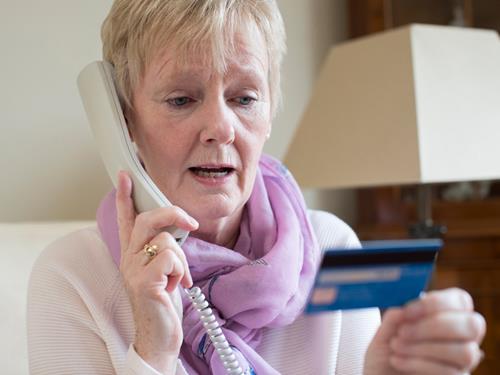Money Matters: How to protect yourself against fraud and what to do if you have been targeted

In this week’s Money Matters column, Wrekin’s debt and energy manager Dan Bebbington sets out some tips to protect yourself from fraud, and what to do if you think you have been targeted.
Fraud has become increasingly sophisticated in the digital age, with scammers using ever-evolving online and phone scams to deceive individuals and businesses.
Many common types of fraud involve scammers impersonating a genuine organisation in order to gain their victim’s trust. Sometimes this will involve them convincing an unwitting target to send over money, and in other cases will involve the fraudster extracting personal information which can then be used to access bank accounts, make purchases and even take out credit in a victim’s name.
To avoid falling victim to these scams, it's crucial to stay vigilant. First, never share personal or financial information over the phone, email, or text unless you are absolutely sure that the person you’re speaking to is who they say they are.
You should also check websites are legitimate before making online purchases or inputting personal details. Most web browsers display a padlock next to the URL (website address) to show a site is safe, and you can also check reviews on sites like Trustpilot.
Always be wary of unsolicited emails, texts and messages through apps such as Facebook Messenger and WhatsApp. Remember your bank or other service providers will never contact you to ask for your passwords, PIN numbers or other identifying information.
You should never click links or download attachments from unknown sources, and be wary of online buyers and sellers asking for payments to go through a third-party website or vouchers.
If you receive a message from a friend or family member asking for money, contact them in another way to ensure it is not a scam.
It is also a good idea to regularly monitor your bank statements for suspicious transactions.
If you believe you have been targeted by fraud, act quickly. If payments have been taken through your bank, you may be able to get your money back, and they will also be able to block any further unauthorised payments.
You can report any incidents of fraud to the police via www.actionfraud.police.uk or by calling 0300 123 2040.
Staying informed and cautious can significantly reduce the risk of falling victim to fraud. One way to do this is by improving your digital skills, if you’re not too confident online.
In Telford & Wrekin, the council holds digital drop-ins every week across the borough, including one every Thursday from 9.30am to 11.30am at the Wrekin Housing Group Hub in Stirchley.
Wrekin customers can also attend any of our own digital inclusion sessions at various locations across Shropshire and Staffordshire. You can find details of upcoming sessions on the events calendar on our website, or email getinvolved@wrekin.com for more information.
13th August 2024